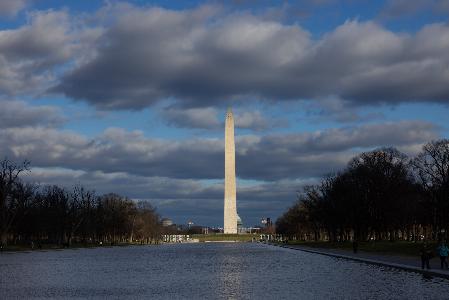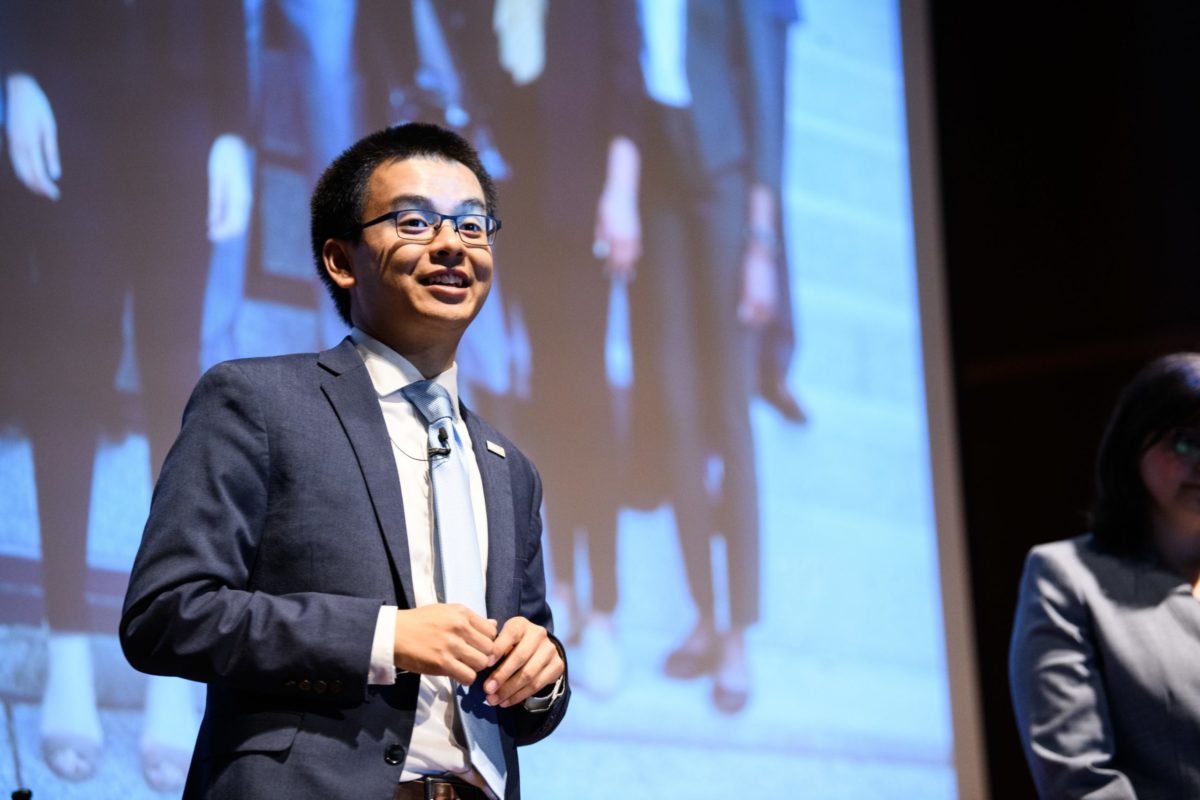For US Digital Corps cofounder Chris Kuang, the need for a social impact opportunity pipeline in the government wasn’t just a hypothetical ideal; It was something he experienced personally.
“I came into this space when I was still in school and looking for opportunities, internships and full-time jobs that were at the intersection of technology and public service,” Kuang told Technical.ly. “And I really couldn’t find any.”
A few years later, it led him to launch the US Digital Corps, a two-year fellowship for early-career technologists interested in social impact and public service technology. It’s also designed to help solve the tech talent pipeline problem in government.
After its launch in August, the program is gearing up to lock down its first round of fellows this quarter. The Corps is a collaboration between the General Services Administration (GSA), White House Office of Management and Budget, the Office of Personnel Management, the Cybersecurity and Infrastructure Security Agency and the White House Office of Science and Technology Policy, and operated through the GSA’s Technology Transformation Services (TTS).
To start out, the Digital Corps will be accepting 30 fellows for its first round. Applications are slated to open in the coming weeks and months, Kuang said, with the first cohort starting in June of 2022. Fellows will be working on developing govtech in spaces including economic recovery, racial equity, COVID-19 response, healthcare and climate. Pay for the program will be determined by location at the federal government’s GS-9 pay level, with DC-based fellows receiving a starting total salary of just over $80,000.
Initial agencies for the program include (but are not limited to):
- GSA
- Department of Veterans Affairs
- Center for Medicare Services
- Center for Medicaid Services
- Consumer Financial Protection Bureau
Since its launch this summer, Kuang said he’s had positive responses from thousands of local technologists, echoing his own experience. He noted, as well, that engaging with universities and other institutions where talent is located has helped to spread the word.
“Traditionally, the federal government defaults to: we’re going to post our jobs and hope it finds its way to people,” Kuang said. “But in some of these conversations, in working directly with the talent pool that we’re trying to communicate with, I think hearing the responses [to our program], hearing the excitement has validated that approach.”
The goal upon opening the application, he added, is making sure the process is as painless as possible. At the end of the program, the hope is that applicants will be fully prepared for a career in government. In particular, Kuang said, the Digital Corps team is looking to work with agencies with targeted plans and reputations for working with early-career technologists and offering the support they need.
“I know for a lot of people working, applying to the federal government isn’t necessarily something that they’ve done before or is perhaps something that they’ve heard a lot of misconceptions about in terms of how difficult, how painful it might be,” Kuang said. “So we’re really committed to taking the time, designing this process, communicating clearly and ensuring that everyone feels like they are prepared to put their best foot forward.”

The nation’s capital. (Photo via Pixabay, used under a Creative Commons license)
The value Kuang sees in early-career technologists, whom he clarified could be anyone from recent graduates to returning veterans, follows a need for people skilled in augmenting existing technologies. Through the program, he said, the fellows can take those tech skills and be trained in government tech, contributing to longer-term development, maintenance and ongoing support.
Embracing the early career technologists, Kuang thinks, is on the whole in the federal government’s best interests. Coming out of schools, certification programs and bootcamps, he noted that these early-career individuals are more likely to have an experimental, thoughtful and disruptive approach to building tech, with great potential benefits.
“There’s another sense in terms of just coming in, not having had experience in the government and being able to, very empathetically and with a lot of humility, ask: why are we doing things this way?” Kuang said. “And not in a way that betrays an ‘I’m smarter than you and better than you’ perspective, but really to have a perspective of ‘I learned certain things when I was in school and I’ve been on the cutting edge in terms of what I saw in the classroom.’ And to really inquire: why are we doing it this way, might we try this?”
Join the conversation!
Find news, events, jobs and people who share your interests on Technical.ly's open community Slack

DC daily roundup: Tyto Athene's cross-DMV deal; Spirit owner sells to Accenture; meet 2GI's new cohort

DC daily roundup: $10M to streamline govt. contracting; life sciences might dethrone software; Acadia's new $50M

DC daily roundup: the DMV's VC cooldown, SmartSigns for safer driving; Rep. Schiff's AI copyright bill


